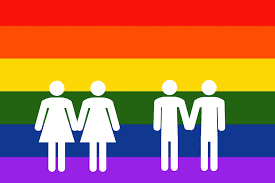Taboo
Let us talk about taboo first. What is taboo? A taboo is an activity that is forbidden or sacred based on religious beliefs or morals. Breaking a taboo is extremely objectionable in society as a whole. But there are certain areas where we need to change. Because before any religion or belief, the right of an individual to live free comes on the top.
The legal status of homosexuality varies greatly around the world. Homosexual acts between consenting adults are known to be illegal in about 70 out of the 195 countries in the world. Homosexual sex acts may be illegal, especially under sodomy laws, and where they are legal, the age of consent often differs from country to country. In some cases, homosexuals are prosecuted under vaguely worded “Public decency” or morality laws. Societal attitudes towards homosexuality vary greatly across different cultures and historical periods. All cultures have their own values regarding appropriate and inappropriate sexuality. Some sects within some religions, especially those influenced by the Abrahamic tradition, have censured homosexual act and relationships at various times, in some cases implementing severe punishments. Homophobic attitudes in society can manifest themselves in the form of anti-LGBTQ discrimination, opposition to LGBTQ rights, anti LGBTQ hate speech and violence against LGBTQ people.
Since the 1970’s much of the world has become more accepting of homosexual acts and relationships. The pew research centers 2013 Global Attitudes Survey “finds broad acceptance of homosexuality in North America, the European Union, and much of Latin America, but equally widespread rejection in predominantly Muslim nations and in Africa as well as in part of Asia and in Russia.
Let us talk about India. Earlier it was seen as antisocial in India, and people living in such relationships are criminalized, but with the changing times, people started to understand and adopt it, although it is also true that the number of people is very less, still we are moving towards that. The landmark cases like 1. NAZ Foundation v. Government of India, 2. Suresh Kumar Kaushal v. NAZ Foundation, 3. NALSA v. UOI and others are commonly known as transgender cases, 4. Justice K.S. Puttaswami v. UOI commonly known as the Privacy judgment case leads to the decriminalization of all consensual sex among adults in private, including Homosexual sex. Despite all the amendments and judgments, some part of our society still sees it as an inferiority complex and does not want to accept it. We can change these people of our society by explaining them, by talking more and more about it in society. And we have already succeeded in doing this to a great extent.
So when we say sexuality, it is something nature has put in us. Somebody has a certain kind of sexual preference which is got nothing to do with the reproduction process as such. It is their personal preference because every individual has the right to do whatever they want to do with their body unless causing any harm to them and to society. There is nothing religious about this, we do not have to discriminate against them, we do not have to persecute them, and we do not have to put them in the prison. So now whenever people give you knowledge of their conservative thinking, then you tell them politely that I do not believe in these things, everyone has their own sexual preferences and in my view, every human being is as good and as of right as I am.


